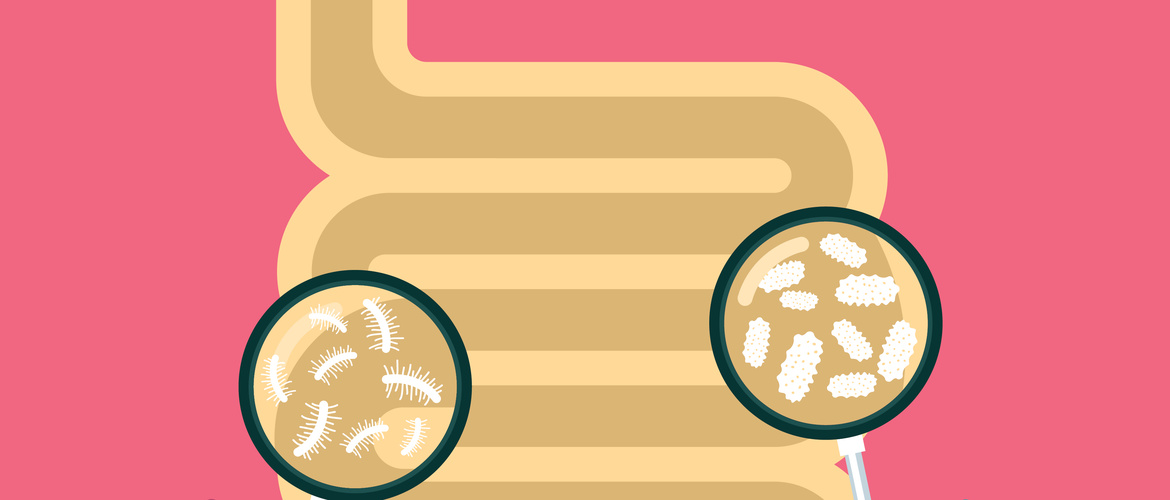
Choose a channel
Check out the different Progress in Mind content channels.

Progress in Mind

Altering the intestinal flora can influence host immunity, neuro-inflammation, and the deposition of β-amyloid in mouse models of Alzheimer’s disease. Growing evidence supports the importance of the gut-brain axis, a concept that may bring a paradigm shift in biology, Sangram Sisodia (University of Chicago, USA) suggested at AAIC2020.
The idea that altering the intestinal microbiome might modulate neuroinflammation and so amyloid-beta (Aβ) deposition came in part from the work of Marco Prinz and colleagues suggesting that the microbiota control the maturation and function of microglia in the CNS,1 Professor Sisodia told the AAIC virtual meeting.
Following this lead, his group treated male APPswe/PS1DE9 mice through their lifespan with a cocktail of high-dose antibiotics.2 Cecal and fecal contents showed that the abundance of bacteria was unchanged – but the composition was radically different. And, in this transgenic mouse model of Alzheimer’s disease (AD), plaque burden was reduced by around 60%.
Altering intestinal flora reduced amyloid by around 60% and changed microglial phenotype
The morphology of the microglia that surrounded plaque was also radically altered, as was their transcriptome. Microglia in the cortex of antibiotic-treated male mice returned to their homeostatic signature. TGF-β signaling, in particular, was restored.
Role of the microbiome truly causal
Subsequent work in a different mouse model found that using antibiotics to alter the microbiome also reduced amyloid pathology and changed microglial morphology but – importantly – only in male animals.3 Transplanting fecal microbiota from age-matched male mice into antibiotic-treated animals partially reversed these changes, suggesting the effects of an altered microbiome are truly causal.
The sex-specific modulation of innate immunity may relate to the influence of the maternal microbiome on microglial differentiation extending back into early postnatal development and possibly even the prenatal environment.4
Experiments have been repeated using an acute, early-post natal course of antibiotics. Findings were essentially the same. Modulating the microbiome produced long-term change in the gut flora accompanied by reduced brain Aβ deposition, changes in populations of T cells and an altered inflammatory picture revealed in the CSF.
The gut microbiome regulates brain function by influencing host immunity
A paradigm shift?
And it is not just in AD that such effects may prove clinically relevant. Lloyd Kasper and colleagues from Dartmouth College have shown that a Bacteroides fragilis polysaccharide can protect the brain in a mouse model of MS.5 And there is evidence this year that antibiotics in mice can alter the gut microbiome in a way that protects against the consequences of ischemic stroke.6
Our new understanding of the importance of the microbiome to the brain may be one of Thomas Kuhn’s revolutions in science whereby one worldview is replaced by another,7 Professor Sisodia suggested.
Our correspondent’s highlights from the symposium are meant as a fair representation of the scientific content presented. The views and opinions expressed on this page do not necessarily reflect those of Lundbeck.
1. Erny D et al. Nature Neuroscience 2015;18: 965–977
2. Minter MR et al. Sci Rep 2016;6:30028
3. Dodiya HB et al. J Exp Med 2019;216: 1542–1560
4. Thion MS et al. Science 2018;362:185-9
5. Ochoa-Repáraz J et al. Mucosal Immunol 2010;3:487-9
6. Benakis C et al. Stroke 2020;51:1844-54
7. https://todayinsci.com/K/Kuhn_Thomas/KuhnThomas-Quotations.htm